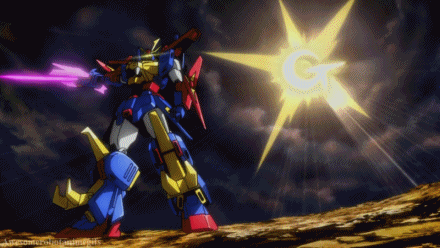- Published on
Mecha Anime and Nuclear Proliferation
- Authors
- Name
- Rukia Nur
Table of Contents
Background
For years, animes been a popular genre of animation and entertainment, with genres spanning from sci-fi to rom-coms. In this post I'll specifically be focused on Mecha-anime, a genre that focuses on the use of mechanized robots powered by nuclear energy and other forms of sci-fi technology. I'll mainly examine the evolution of mecha-anime and its relationship to nuclear proliferation and Japanese history this is largely just my observations and opinions on larger topics I'm wildly under qualified to be an authority on .
History
Mecha anime first rose to prominence in the early 1970s, back when the Cold War was running at an all time high. At this time, there were fears of global nuclear warfare between the good ol' US of A and the Soviet Union our closest competitors post-WW2. Not to mention the United States had just flexed its Nuclear arsenal twice in Hiroshima and Nagasaki. This heightened climate led to greater interest in science fiction following the dusk of Golden Age Science Fiction, these newer works with regards to mecha showed off depictions of machines powered by nuclear energy. Culminating in classic series such as Gundam and Macross which featured giant humanoid robots fought each other using weapons powered by radioactive materials or fusion reactors. In addition to providing escapism from real-world anxieties, these works further popularized the idea of nuclear power and its potential uses.

Evolution
Following decades of what might be described as 'peace times', the genre has become less focused on its themes of militarization and has been developing on themes of peace and diplomacy. Series like Neon Genesis Evangelion tackled topics like the psychological trauma left behind by nuclear conflict while Code Geass explored the dangers of unfettered political power. In spite of this shift in focus, many mecha anime still depict giant robots powered by fusion reactors or other forms of nuclear energy. This thematically communicates at least to me that even though we have made great strides in terms of international relations since the Cold War era, there is still an ever-present danger posed by nuclear weapons or I'm reaching too hard and big robots beating each other up serves as good entertainment. Who knows?
Conclusion
It would be remiss to not reflect on Japans unique relationship with nuclear weapons due to its history, being the only country to have ever experienced atomic bombings. This experience has had a deep and lasting impact on Japanese culture, visibly so in various forms of Japanese art including anime, the mecha genre is just the most obvious in its relation to those themes. In addition to providing escapism from the country's real-world anxieties, these works often serve as warning against unchecked military power and the dangers posed by nuclear weapons. Through this lens, it is clear that mecha anime and games like Defcon can be seen as important tools for educating people about both the destructive capabilities and potential positive benefits of nuclear energy.